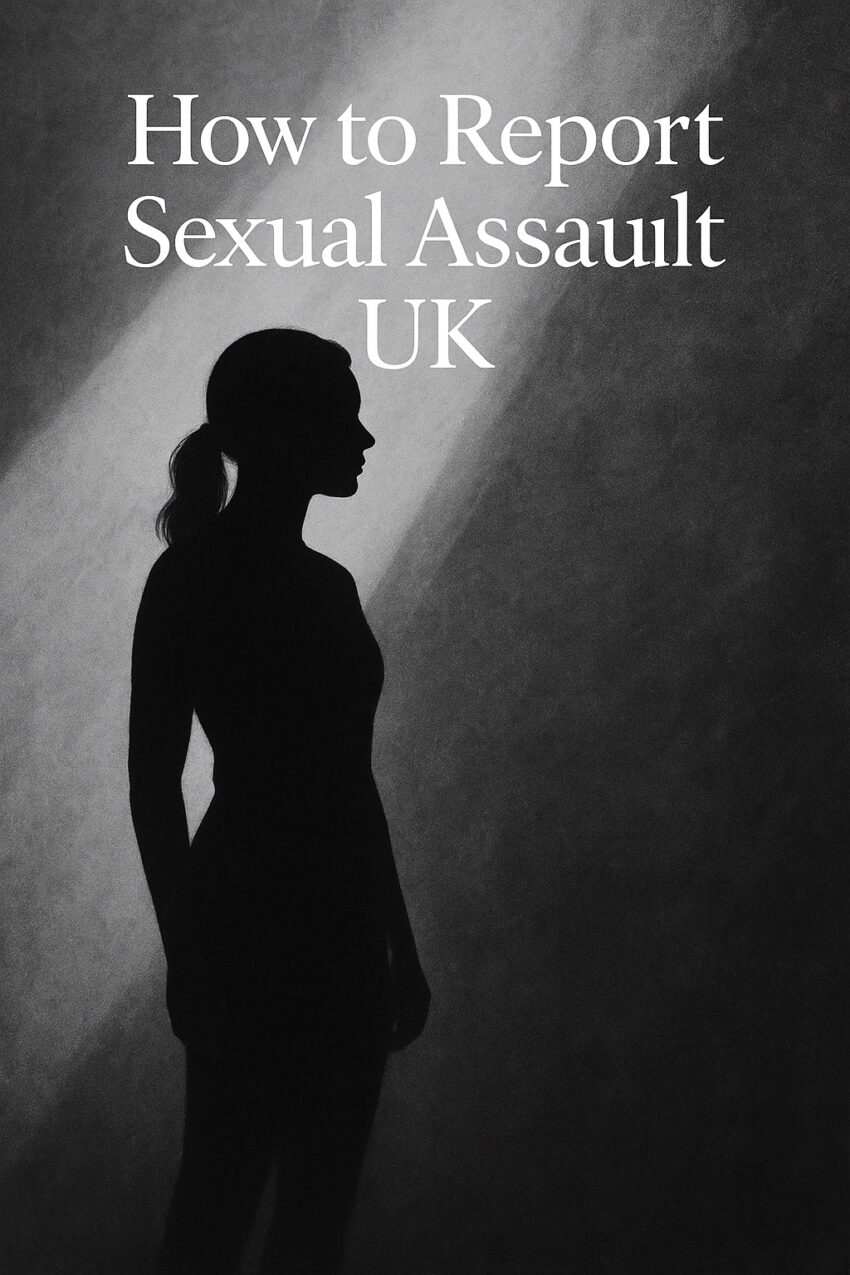How to Report Sexual Assault in the UK (Without Losing Your Mind)
How to report sexual assault UK resources often forget the human behind the process. You want justice, but you also want to survive the system intact. This post is here to walk you through the practical steps, emotional realities, and legal routes — in plain English, without sugar-coating.
Whether the incident happened recently or years ago, you have options. And you are not alone.
Wondering how to report sexual assault UK survivors face without being retraumatised? This guide gives you the tools and steps to do it safely.
Should I Report Sexual Assault to the Police?
That’s the first question many survivors ask. The answer is: only if and when you feel ready. Some report immediately. Some wait years. Some never do. All are valid.
Reporting sexual assault in the UK is not a quick or easy process. It can be triggering, slow, and deeply emotional. But it can also be empowering — especially when handled on your terms.
There is no time limit on reporting most sexual offences in the UK. If you’re unsure, you can always speak confidentially with a support worker or legal advisor first.
How to Report Sexual Assault UK (Step-by-Step)
1. Contact the Police
You can report via:
- 999 in an emergency
- 101 for non-emergency reports
- Online via your local police force’s website
When you report, you’ll usually be assigned a specially trained officer (SOIT officer in most areas). They’ll guide you through the next steps and ask for a detailed account.
2. Give a Statement
This might be written or recorded as a video interview. It’s normal to feel overwhelmed, confused, or emotional during this. You can ask to pause or take breaks.
You’re allowed to bring someone for support — but they can’t speak on your behalf.
3. Forensic Evidence (Optional)
If the assault happened within the last 7 days, you may be offered a forensic exam at a Sexual Assault Referral Centre (SARC). This is your choice. It can help strengthen a case, but only if you consent to it.
4. CPS Review
Once the investigation is complete, the Crown Prosecution Service (CPS) will decide whether to press charges. This can take time. Sometimes months. Be prepared for silence — and chase for updates if needed.
5. Trial or Closure
If charges are brought, you may be asked to testify. If not, you still have the right to access support, request a Victim Right to Review, or pursue civil action.
Things They Don’t Tell You (But We Will)
- There may be long stretches of silence. That doesn’t mean your case is forgotten.
- You’re allowed to feel rage, grief, or even guilt. None of it makes what happened your fault.
- You don’t have to hand over every part of your life to prove you’re telling the truth. Push back if you’re being over-questioned about unrelated things.
- You are not dramatic. You are not overreacting. You are responding like a human who has been harmed.
Survivor Rights & Legal Support
If you’re struggling to understand your rights, the Rape Crisis England & Wales site is a trusted place to start. They offer anonymous advice, referrals, and legal guidance tailored for survivors across the UK.
You can also request a Victim’s Advocate, or access emotional support services through your GP, Victim Support, or an Independent Sexual Violence Advisor (ISVA).
What to Prepare Before Reporting
- Names, descriptions, or locations if known
- Dates or approximate timeframes
- Any evidence — texts, photos, screenshots
- Your own account, even if messy. It’s okay if it’s not perfect.
If you’re not sure how to report sexual assault UK in your region, you can also call 101 or use your local police force’s online system.
If you’re not ready to speak, you can write a statement first. We offer printable templates and guided writing tools to help survivors prepare for this stage.
️ Need Help Writing What Happened?
We created the Closure Letter Kit for survivors like you. It includes printable tools, grounding exercises, and writing prompts to help you structure your story — with power, not pressure.
Final Words
Learning how to report sexual assault UK survivors face is one thing. Actually doing it is another. Give yourself permission to go slow. To grieve. To rage. To cry. To pause. To breathe.
You are under no obligation to be composed or strategic. You are allowed to take up space.
This system wasn’t built with survivors in mind — but your truth still matters in it.
Knowing how to report sexual assault UK procedures work gives you back control. Your story deserves to be heard on your terms.

